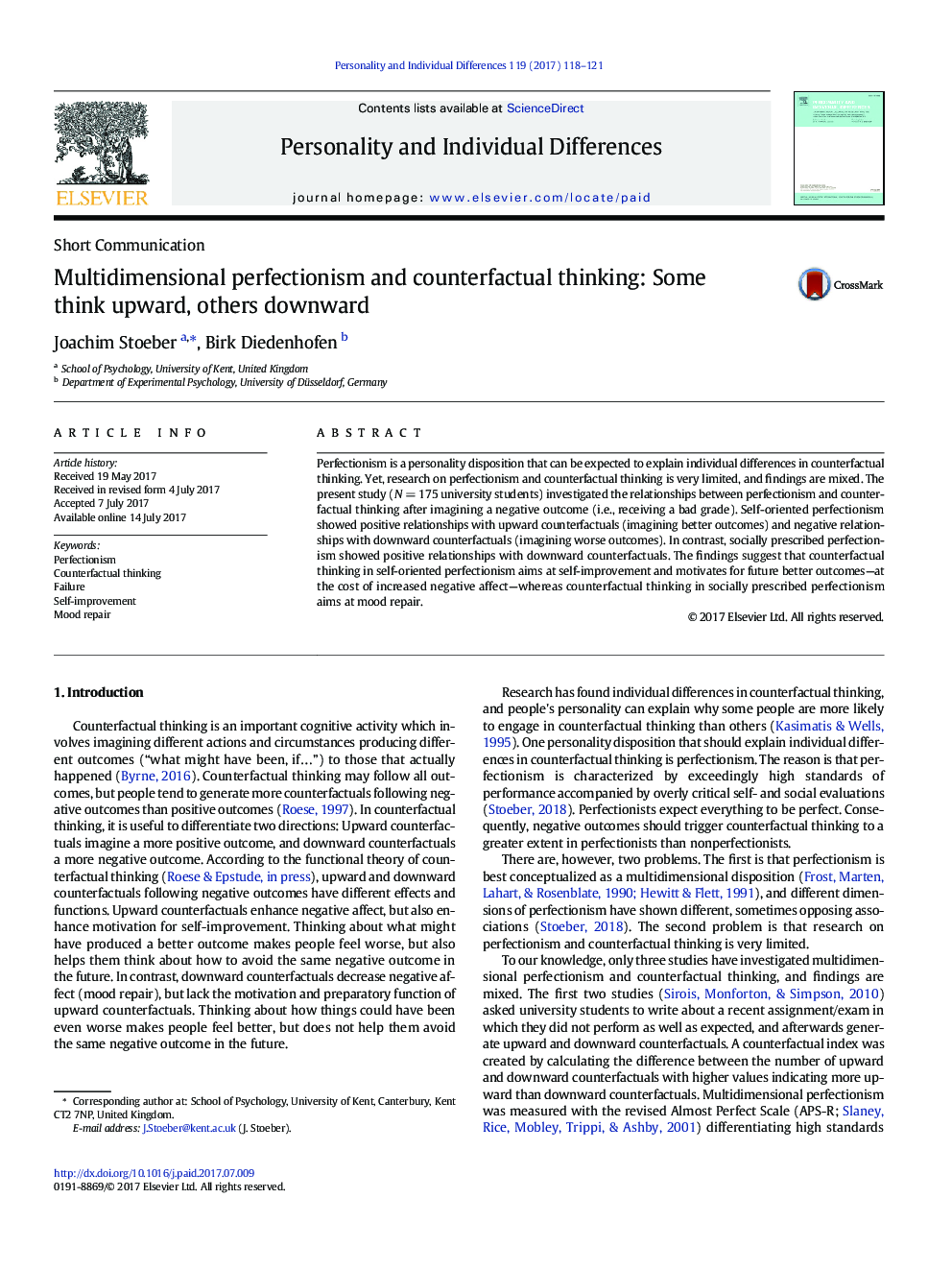| Article ID | Journal | Published Year | Pages | File Type |
|---|---|---|---|---|
| 5035696 | Personality and Individual Differences | 2017 | 4 Pages |
â¢Investigated perfectionism and counterfactual thinking in 175 university students.â¢Examined upward and downward counterfactuals (CFs) following a negative outcome.â¢Self-oriented perfectionism correlated positively with upward CFs.â¢In addition, it correlated negatively with downward CFs.â¢Socially prescribed perfectionism correlated positively with downward CFs.
Perfectionism is a personality disposition that can be expected to explain individual differences in counterfactual thinking. Yet, research on perfectionism and counterfactual thinking is very limited, and findings are mixed. The present study (NÂ =Â 175 university students) investigated the relationships between perfectionism and counterfactual thinking after imagining a negative outcome (i.e., receiving a bad grade). Self-oriented perfectionism showed positive relationships with upward counterfactuals (imagining better outcomes) and negative relationships with downward counterfactuals (imagining worse outcomes). In contrast, socially prescribed perfectionism showed positive relationships with downward counterfactuals. The findings suggest that counterfactual thinking in self-oriented perfectionism aims at self-improvement and motivates for future better outcomes-at the cost of increased negative affect-whereas counterfactual thinking in socially prescribed perfectionism aims at mood repair.
